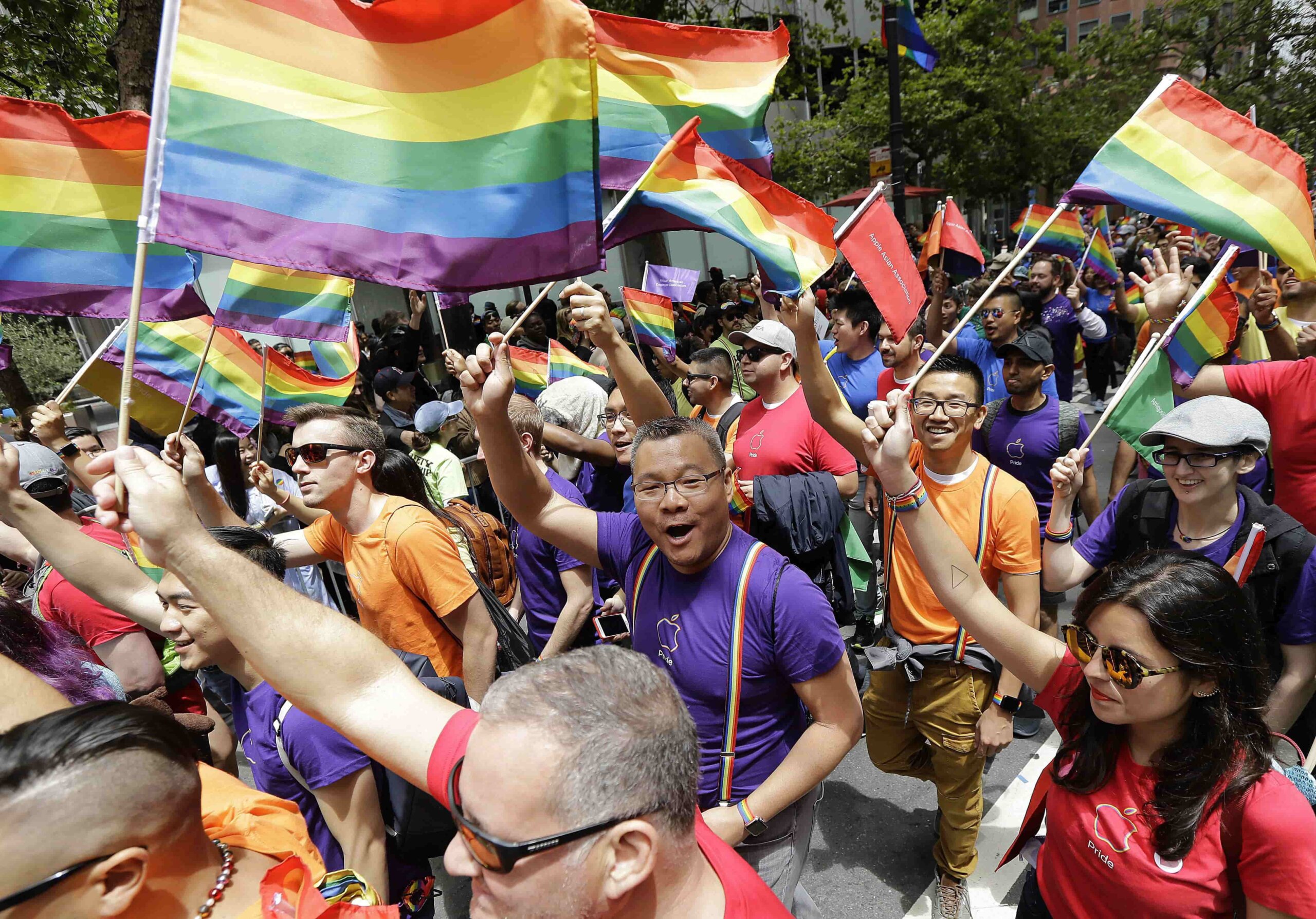San Francisco mayor London Breed announced this week that she intends to pull out of the city’s annual Pride parade following organizers’ ban on uniformed law enforcement participating in the event.
In a May 23 statement, Breed called the decision “very hard” and said it was made “in order to support those members of the LGBTQ community who serve in uniform, in our police department and sheriff’s department, who have been told they cannot march in uniform.” The announcement was made after the San Francisco Police Officers Association and the San Francisco Fire Department said they would boycott this year’s Pride march, scheduled for June 26.
“I love the Pride parade, and what it means for our LGBTQ community and for our city. It’s one of my favourite events of the year,” Breed said. “However, if the Pride Board does not reverse its decision, I will join our city public safety departments that are not participating in the Pride parade.”
San Francisco Pride is one of the biggest Pride celebrations in the country, with a whopping 289 parade contingents participating in 2019 alone. An estimated 1-million people turn out to the event each year. Organizers implemented the uniform ban in 2020 after LGBTQ2S+ protesters were arrested and allegedly injured by members of law enforcement following a protest against police involvement and corporate sponsorship in the parade.
While police uniforms are not allowed at the event, Pride organizers said law enforcement officials are not banned from representing their professions entirely.
The parade still allows police officers to wear T-shirts bearing logos of their departments, just not their customary black dress shirts, slacks, ties and hats.
“We didn’t ask anyone to hide, or not to denote who they were,” Suzanne Ford, interim executive director of San Francisco Pride, told local Fox affiliate KTVU. “We just did not want full uniforms, out of harm reduction to marginalized members of our community.”
The relationship between law enforcement and the LGBTQ2S+ community is often a violent one that dates back to the raid on New York City’s famed Stonewall Inn in 1969. The six days of protests in response to the routine police brutality to which the bar had been subjected paved the way for the modern LGBTQ2S+ rights movement in North America.
San Francisco is just one of many cities to reconsider the presence of uniformed police officers at Pride events, given the complicated history between law enforcement and members of the community. Toronto Pride has banned uniformed police from marching since 2017 and, last year, New York City Pride disallowed officers marching in the parade until at least 2025. Organizers in cities like Denver and Seattle have also limited the participation of law enforcement in Pride events.
These decisions have generated some backlash. Like Breed, Ontario premier Doug Ford declined to march in the Toronto Pride Parade in 2019, citing the similar exclusion of uniformed police officers. Toronto Pride organizers said the decision was made in support of the global Black Lives Matter movement.
More recently, Aurora, Illinois, mayor Richard Irvin asked Pride organizers in his town to reconsider the newly announced ban on uniformed police marching in the parade. Irvin said he was “extremely distressed and disappointed” by the move.
Despite San Francisco’s uniform ban, the city’s police department said it would still be in attendance for security reasons.
“The San Francisco Police Department supports the decision of our LGBTQ+ officers,” the San Francisco Police Department said in a May 23 statement. “We proudly stand with Mayor London Breed, members of the San Francisco Sheriff’s Office and San Francisco Fire Department, to not march in the San Francisco Pride Parade. We will be there to support them when the time comes that they return to marching in the parade.”
Update: June 7, 2022 10:55 amSan Francisco Pride organizers have reached a compromise, allowing some members of law enforcement to march in uniform. Mayor Breed and other city officials have since announced their plans to march in the Pride parade.


 Why you can trust Xtra
Why you can trust Xtra


